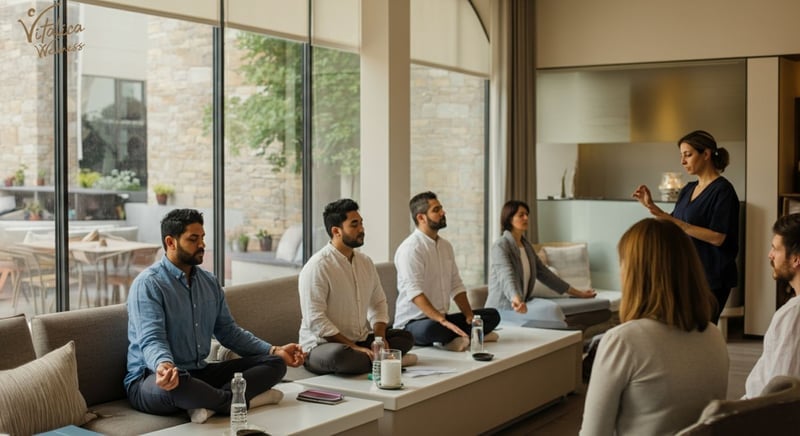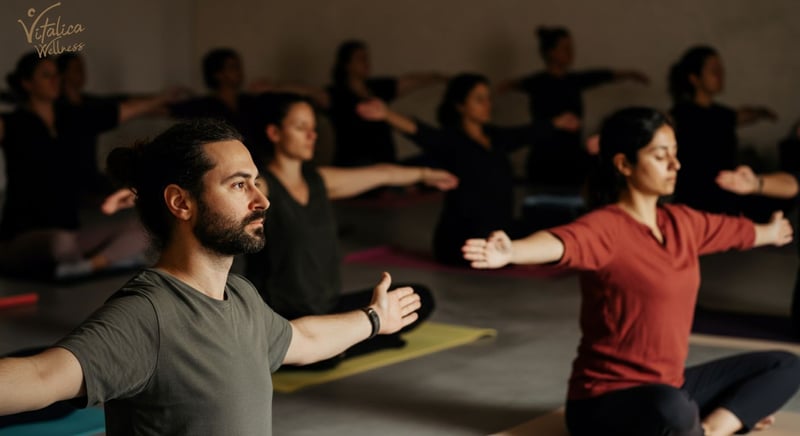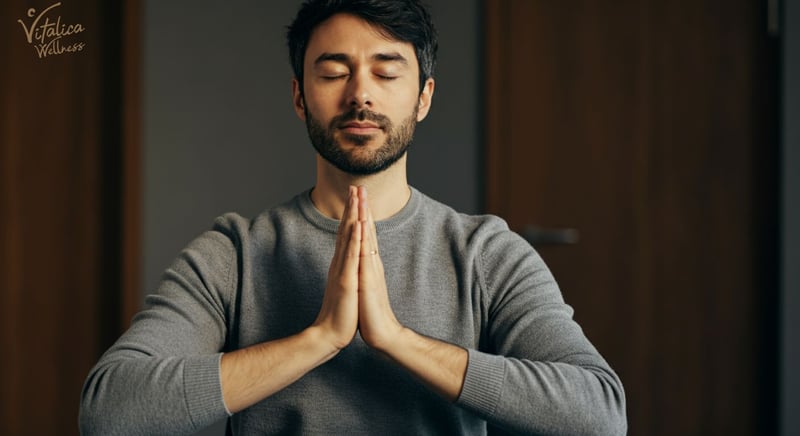In today’s fast-paced world, stress management has become a vital skill for maintaining both mental and physical health. From balancing work and family to dealing with societal pressures, stress can accumulate quickly. Understanding different techniques to manage stress effectively can lead to significant improvements in everyday life. Not only can stress reduction enhance your well-being, but it can also boost your productivity and overall happiness. This guide explores essential stress management techniques, focusing on both scientific approaches and holistic methods, tailored for busy individuals seeking a healthier lifestyle.
Understanding Stress: What It Is and Why It Matters
Exploring the Impact of Cortisol on Stress Management
Stress management involves understanding the role of cortisol, a hormone released during stress. Cortisol helps the body respond to stress by increasing energy availability and enhancing focus. However, prolonged exposure to high cortisol levels can lead to health issues like anxiety and depression. Recognizing the signs of elevated cortisol, such as irritability or fatigue, is crucial for effective stress management.
Key Stress Management Techniques
- Mindfulness practices, such as meditation, can reduce cortisol levels and promote relaxation.
- Engaging in regular physical activity helps manage stress by releasing endorphins, which improve mood.
- Breathing exercises, like deep breathing, can lower stress by calming the nervous system.
Incorporating these techniques into daily routines can significantly improve stress management and overall well-being.
Steps to Identify and Manage Stress Triggers
- Identify common stressors, such as work deadlines or personal conflicts.
- Develop coping strategies, like time management or seeking support from friends.
- Implement relaxation techniques, such as yoga or guided imagery, to alleviate stress.
By understanding personal stress triggers and responses, individuals can better manage stress and enhance their quality of life.

Effective Strategies for Managing Daily Stress
Integrating Lifestyle Adjustments for Stress Management
Effective stress management requires integrating lifestyle adjustments that promote overall well-being. Regular exercise, such as jogging or swimming, not only boosts physical health but also releases endorphins, which are natural mood enhancers. A balanced diet, rich in omega-3 fatty acids and antioxidants, supports cognitive function and reduces stress-related symptoms. Ensuring adequate sleep is crucial, as it allows the body to recover and maintain optimal cortisol levels, preventing chronic stress.
Time Management and Cognitive Techniques
- Prioritizing tasks can reduce overwhelm and enhance productivity.
- Setting realistic goals helps maintain focus and motivation.
- Rethinking negative thought patterns can improve emotional resilience.
By incorporating these strategies, individuals can manage stress more effectively and improve their quality of life.
Steps to Implement Stress Relief Techniques
- Begin with simple relaxation techniques, such as deep breathing or progressive muscle relaxation.
- Gradually incorporate mindfulness practices, like meditation or guided imagery, into daily routines.
- Explore stress management classes or workshops to learn advanced techniques.
These steps can help individuals develop a comprehensive approach to stress relief, enhancing both mental and physical health.

Top Stress Relief Techniques for Busy Lives
Quick Stress Relief Practices for Busy Professionals
Busy professionals often struggle to find time for stress management. However, incorporating quick stress relief techniques into daily routines can be highly effective. Mini-meditations, which can be as short as one minute, allow individuals to pause and reset their mental state. Similarly, deep breathing exercises, such as pranayama, can be practiced during short breaks to calm the mind and reduce cortisol levels. These practices are not only time-efficient but also enhance focus and productivity.
Integrating Mindfulness into Daily Routines
- Practice gratitude by noting three things you are thankful for each day.
- Use visualization techniques to imagine a peaceful scene, reducing stress.
- Engage in mindful eating by savoring each bite and focusing on flavors.
Mindfulness practices can be seamlessly integrated into daily activities, promoting relaxation and stress reduction without requiring significant time investment.
Steps to Incorporate Stress Relief Techniques
- Identify moments in your day where you can pause for a mini-meditation.
- Incorporate deep breathing exercises during routine activities, like commuting.
- Set reminders to practice gratitude or visualization at specific times.
By following these steps, individuals can effectively manage stress and enhance their overall well-being, even with a busy schedule.

Mindfulness and Relaxation: Keys to Stress Reduction
Exploring Mindful Breathing and Its Benefits
Mindful breathing is a cornerstone of stress management, offering a simple yet powerful way to manage stress. By focusing on each breath, individuals can anchor themselves in the present moment, reducing anxiety and promoting a sense of calm. This technique is particularly effective in lowering cortisol levels, which are often elevated during stress. For example, taking slow, deep breaths can help clear the mind and improve concentration, making it easier to cope with daily challenges.
Effective Relaxation Techniques for Stress Relief
- Progressive muscle relaxation helps release physical tension and promotes mental clarity.
- Guided imagery allows individuals to visualize peaceful scenes, reducing stress and enhancing relaxation.
- Yoga nidra, or ‘conscious sleep,’ supports stress relief by balancing energy centers and promoting recovery.
Incorporating these relaxation techniques into a daily routine can significantly enhance stress management and emotional well-being.
Steps to Create a Mindfulness and Relaxation Routine
- Begin with short sessions of mindful breathing each morning to set a calm tone for the day.
- Incorporate progressive muscle relaxation or guided imagery during breaks to alleviate stress.
- End the day with yoga nidra to promote deep relaxation and restore energy balance.
By following these steps, individuals can effectively manage stress, improve their mental clarity, and enhance their overall quality of life.
Integrating Mindfulness and Relaxation Techniques for Stress Management
Achieving Stress Reduction through Holistic and Scientific Approaches
Enhancing Well-being through Effective Stress Management Techniques
Frequently Asked Questions
What are some effective stress management techniques for busy professionals?
How can mindfulness practices aid in stress reduction?
What role does cortisol play in stress management?
How can lifestyle adjustments contribute to stress management?
What are some quick stress relief practices for busy lives?
Discover the path to holistic wellness and rejuvenate your mind and body with Vitalica Wellness. Call us today for a free consultation and start your journey towards a healthier you!
